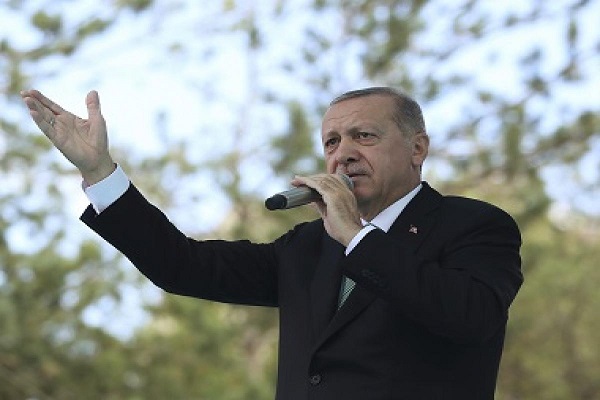Alwaght- Economic relations have always been a benchmark to check the level of closeness of the relationship between countries. Although other factors are important in this matter, the economic ties are the most important in a world where the politics and economy are increasingly interwoven.
The Israeli regime, which suffers from political and economic isolation in the region, has always been worried about its economic relations with some of the regional countries, fearing for them to be possibly affected by political tensions.
Turkey is one of the most important regional states that has large-scale economic ties with the Israeli regime. Since 2010, the tensions between the two sides set to rise. But how much do these tensions affect their bilateral business ties?
Relations boost period
Turkey was the first Muslim country that recognized the Israeli regime in 1949. In 1958, secret agreements were made between the two sides paving the way for a strategic partnership for the years to come. In 1999, Mossad helped Turkish intelligence arrested Abdullah Ocalan, the leader of the Kurdistan Workers Party, an outlawed organization fighting Ankara for decades.
In the same year, the New York Times in an article wrote that the strategic Turkish-Israeli partnership can change the West Asian policy.
In 2010, a Turkish ship, Mavi Marmara, with human rights activists headed to Gaza to break the Israeli siege on the Palestinian enclave. The ship was attacked by Israeli commandos 50 miles away from the Gaza coast. The attack killed 16 activists and wounded 50. Their ties experienced chill after a war of words between two sides’ leaders. Their relationship was relatively improved in 2015 but it again underwent troubles after the US President Donald Trump announced the transfer of the American embassy from Tel Aviv to Al-Quds (Jerusalem) following recognition of the Muslim city as the capital of a Jewish state. In reaction, Erdogan expelled the Israeli ambassador and recalled his country’s.
Nearly a decade after Turkish-Israeli ties began to deteriorate, the Israeli intelligence community in its 2020 report highlighted Turkey as a threat to the Israeli regime. In addition to Gaza-related strain, energy extraction in the eastern Mediterranean and the Turkish military presence in Libya fuel the tensions between them.
Economic ties
The closing years of the 1990s marked the pinnacle of the Israeli-Turkish ties. In 1996, they signed a free trade deal. To encourage bilateral trade, they signed a treaty eliminating double taxation. Two years later, they signed an agreement for common investment. The agreements underpinned the next-decade business. Their trade volume in 2010, statistics show, touched $1.59 billion. A year later, it reached $2 billion as it grew 26 percent. Turkey was the sixth export destination of Israeli businesses.
In 2010 and 2011, the Israeli exports grew 39 percent to reach $950 million. The imports grew 16 percent to reach $1.05 billion. They started a joint infrastructural project in the Mediterranean Sea in 2008. The aim was to construct a modern network allowing for long-term oil, gas, water, and power transition. Those years also saw the flourishing of tourism. Proximity, as well as visa-free travel, increased the Israeli tourists visiting Turkey to 300,000 in 2009. By September 2011, the Israeli tourists visiting Antalya and Istanbul grew 20 and 13 percent respectively.
Economic ties under the political tensions
From the ship attack to the rapprochement of 2016, their economic ties underwent many ups and downs. Military exports to Turkey witnessed suspension after the Marmara incident. The Israeli tourists visiting Turkey dropped to 0.5 from 3 percent. But at the same time, their trade volume surged, unexpectedly reaching $5 billion in 2014, the year the tensions were at their summit. After the 2014 Israeli war on Gaza in 2014, the international investment in the occupied territories dropped 50 percent but the Israeli-Turkish business ties kept booming. In 2016, their trade exchange slightly dropped to $4.3 billion.
Due to trade bonds already existing, the two sides’ business people sought to broaden trade. After the 2016 reconciliation, a business delegation of about 100 business representatives traveled to the occupied territories.
The Israelis pointed to the need for economic ties boom as a way to avoid harm to political relations. In 2017, Israeli intelligence minister lauded normal Israeli-Turkish economic ties, saying Erdogan’s remarks left no impact on bilateral trade. He added 25 percent of Turkish exports to the Persian Gulf Arab states go through Israeli Haifa Port. These remarks served as a reminder warning Erdogan not to cut off political ties. Even the psychological warfare by Israeli elites and the Turkish economic threats could not cover up their economic ties. Last year and when Turkish national currency Lyra value dropped, Edy Cohn, an Israeli university professor and political activist, in psychological warfare threatened the Israeli economy via the rich Jewish lobbies.
Comments by Yisrael Katz, the Israeli foreign minister, gave a clear picture of the contradiction between economic and political ties of the two sides. Katz in August last year told the Knesset’s Foreign Affairs and Defense Committee that “Erdogan does not like us and we do not like him. There is clear enmity between Israel and Turkey. But the trade is booming. Even some of his [Erdogan’s] family members help trucks travel to Haifa for goods delivery to the Arab countries.”
Following the American embassy relocation, Erdogan hardened his tone against the Israeli regime calling it a terror and occupying state.
Still, the figures demonstrate growth in their bilateral trade, even after the embassy relocation. The Israeli exports to Turkey in December 2019 went beyond $416 million. The bilateral trade grew $133 million. In the first quarter of 2019, their trade was $1.59 billion— $1.08 billion being the Turkish exports. Their trade last year was over $4.41 billion. Kristian Brakel, the head of Turkey Office at Heinrich Böll Foundation, commented on this contradiction saying Erdogan is a realist and pragmatist politician. Brakel added that constantly there are elections in Turkey and tensions with Tel Aviv can serve as a tool for popular mobilization.



























